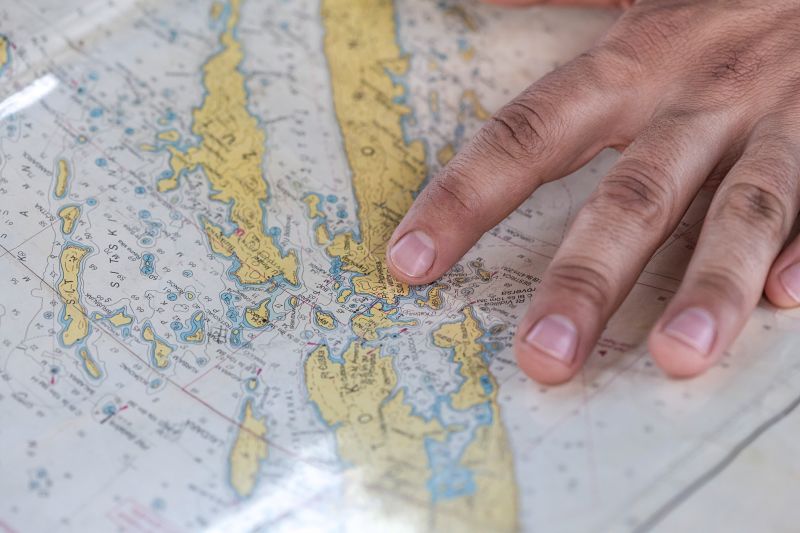An Antidote For the iGeneration
★★★★

We know the iGeneration refers to those who grew up with the knowledge of technology.
Does it also suggest people whose lives center around me, me, me, what I want, and when I want it? Sometimes I wonder.
What will a me-centric person do for their family and neighbors? How will an i-person learn to be aware of and serve someone other than himself? How will teachers and parents counter the entitlement of i-children and train them to be contributing citizens?
Education is not a final answer but it helps. History and geography can awaken children’s awareness of people beyond their zip code and before their birth year. Literature introduces them to words and stories that stretch farther than what they hear from their peers.
Travel can also be a way to widen horizons, gain awareness, appreciate diversity. Traveling with a passport does this, but so does walking across the road to the neighbors, singing at a nursing home, or befriending the boy who bags your groceries.
When I finished high school, I could identify the continents, most oceans, and Italy’s boot. I had learned the capitols of most of the European countries, but couldn’t find them on a map. Clearly, I was not a stellar geography student. But I knew that I lived on a globe that was humming with languages, cultures, land formations, and people different from my immediate world.
I owe that knowledge to my parents and grandparents. The fabric of my childhood is woven with words and food and stories from El Salvador, Australia, Belize, Paraguay, Russia, and Germany. My grandparents lived in El Salvador and we visited them when I was five. I watched my uncle shinny up a tree to get a coconut, then slice off the top with his machete. We drank its water, and I was surprised that it didn’t taste like coconut.
There were always books and stories in our home. We read missionary stories set in India, Canada, Holland, Romania. My parents spoke in wonder at a National Geographic article that featured the deadly puffer fish in Japan. If a chef didn’t prepare the delicacy correctly, the diner would die in minutes. The risk! The intricate designs on the plate! We were all agog.
One day I came home from school with all my classmates and found our living room and dining room cleared of our normal furniture. Instead, there were boards set on stacks of bricks, creating low tables at which we sat cross-legged. Each place setting had a set of chopsticks. I don’t remember the food, but I remember the thrill of trying to eat with chopsticks for the first time, discovering it took way too long to eat that way, but feeling like I experienced something from another place in the world.
My parents did our family an enormous favor when they insisted we eat at least a little bit of all the food at every meal. Everything. Even if the asparagus made me gag. There was no picking out the onions and peppers. There was no catering for someone who didn’t like some part of the menu. There was no grumbling about the food. Sometimes I think that was one of the biggest ways they countered the i-tendencies in us. It has made us fearless about trying new tastes, textures, and combinations. What are adults to do if they’ve avoided common food all their life, then find themselves in another country—or across the mountain—and there are onions on the pizza?
A feature of our home was the big world map. We would stand at that wall with our friends, finding obscure countries, tracing the latitude lines between Ireland and Canada, counting time zones between us and Australia, quizzing each other about countries and capitals.
Although moving to Ireland widened our family’s horizons, being globally-aware doesn’t have to mean flying across the Atlantic or regularly reading Al Jazeera news or knowing more than one language. In all our growing up years, our parents taught us that business and normal life is not about following the American dream but about serving and connecting with people. We weren’t allowed to stare or point at people who looked different from us. It was normal to talk with Down Syndrome children and their parents. It wasn’t odd to invite customers to church and invite them home for Sunday dinner.
My academic prowess is still limited. I don’t have any letters behind my name because my formal education lacked in a lot of ways. But my parents made me eat the mushrooms in the pizza, and they held brain-injured children’s hands and taught us German hymns. Now that we’re grown, none of my siblings has a white picket fence around their house, but we have a big, big world.
Even though we didn’t know what the iGeneration was when we were growing up, we still battled selfishness and love of comfort. Entitlement might be heightened these days for any number of reasons, but there are ways to counter today’s iGeneration and pull the self toward one’s neighbor and away from me, me, me.
You might start with a world map on the wall.
Karen Yoder
7 years ago
Thanks for sharing, Anita. You gave some powerful suggestions. We have a world map in our classroom that we ‘travel’ over frequently. My first memory of that nudge to be a missionary and see another country was when someone showed slides at church and I saw poor children going to school in cement rooms. I still remember a few of those pictures thirty years later.